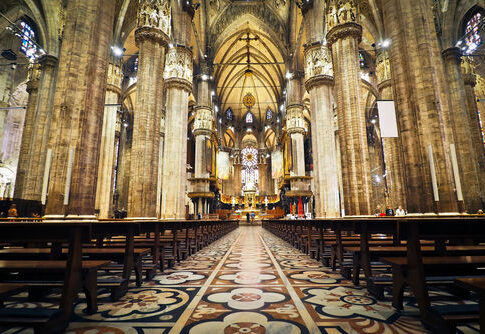A direct lawsuit against the Archbishop of New Orleans exposes new depths of institutional failure, raising urgent questions about leadership accountability and the protection of vulnerable children.
Direct Allegations Target Church Leadership
The August 2025 lawsuit against Archbishop Gregory Aymond marks the first time he has been directly accused in court of personally covering up child sexual abuse within the Archdiocese of New Orleans. Unlike prior cases that cited broad institutional failures, this suit alleges specific wrongdoing by the archbishop himself, bringing intense focus to his leadership and the culture of secrecy that has long frustrated abuse survivors and advocates for transparency.
The lawsuit comes on the heels of a massive $180 million settlement agreement announced in June 2025 between the archdiocese and abuse victims. This settlement—the largest of its kind in the region—demands not only financial compensation but also the public release of key documents and perpetrator files. Survivors and their legal teams have pushed for years to shed light on the extent of abuse and to hold top officials personally accountable for any cover-ups and failures to protect children.
Background: Decades of Scandal and Institutional Crisis
The Catholic Church has faced recurring sexual abuse scandals worldwide, with American dioceses repeatedly implicated. The Archdiocese of New Orleans has been under particular scrutiny since 2020, when it filed for bankruptcy in response to a surge in abuse claims. Multiple victims have come forward over the years, describing not just abuse but also systematic efforts to conceal misconduct. The subsequent bankruptcy proceedings became a battleground for compensation, transparency, and deeper examination of church leadership’s role in perpetuating harm.
The situation in New Orleans mirrors similar crises in dioceses like Buffalo and Rockville Centre, where settlements have reached $150 million and $323 million respectively. The Archdiocese of Los Angeles set a national record with nearly $900 million in payouts. These cases underscore a pattern of institutional resistance, legal maneuvering, and, ultimately, public pressure forcing unprecedented levels of financial and documentary accountability on church hierarchies.
Key Stakeholders and Power Dynamics
Archbishop Gregory Aymond stands at the center of the current lawsuit, his authority and reputation now directly challenged. The plaintiffs—survivors of clergy abuse—seek not only justice for themselves but systemic change to prevent future cover-ups. Their attorneys have emphasized the significance of direct allegations, arguing that real accountability requires naming and scrutinizing those at the very top. The Archdiocese, facing both financial strain and public outrage, aims to resolve liabilities and restore credibility, while federal bankruptcy courts and Judge Meredith Grabill oversee the process to ensure fairness and transparency.
Legal experts and abuse advocates see this moment as a turning point. By mandating the release of perpetrator files and demanding direct accountability from leadership, the New Orleans case sets a benchmark for other dioceses facing similar accusations. Some church officials have described the settlement as a step toward healing, but survivors and their supporters remain skeptical, insisting that genuine reform requires ongoing vigilance and structural change.
Wider Impact: Transparency, Accountability, and Conservative Concerns
The fallout from the lawsuit and settlement extends beyond New Orleans, potentially influencing how religious institutions across America address abuse claims and public trust. The $180 million payout represents a significant financial blow, but the mandate for transparency—public release of previously hidden files—could have even more lasting consequences. This forced openness challenges long-standing patterns of secrecy and highlights the dangers of unchecked institutional power, a concern shared by conservatives who value accountability, the rule of law, and protection of the vulnerable.
New Orleans archbishop accused of personally hiding child abuse in lawsuit#CCSA Clerical Child Sexual Abuse #CSA #AbuseByClergy #Coverup
Catholic
LA
USAhttps://t.co/4D7zMM1R2F— Rarely Wright (@2Rarely) August 28, 2025
For many, this case is a reminder of the risks posed by unaccountable leadership and the need to uphold foundational American principles such as due process, transparency, and justice for victims. As the lawsuit proceeds, all eyes will be on the court’s handling of the direct allegations and whether the new transparency requirements truly mark a break from the failures of the past. While the archbishop maintains his denial, the legal process is expected to bring more facts to light—facts that will shape the future of church governance and the public’s trust in religious and civic institutions alike.
Sources:
Archdiocese of New Orleans agrees to $180 million dollar settlement with abuse victims

